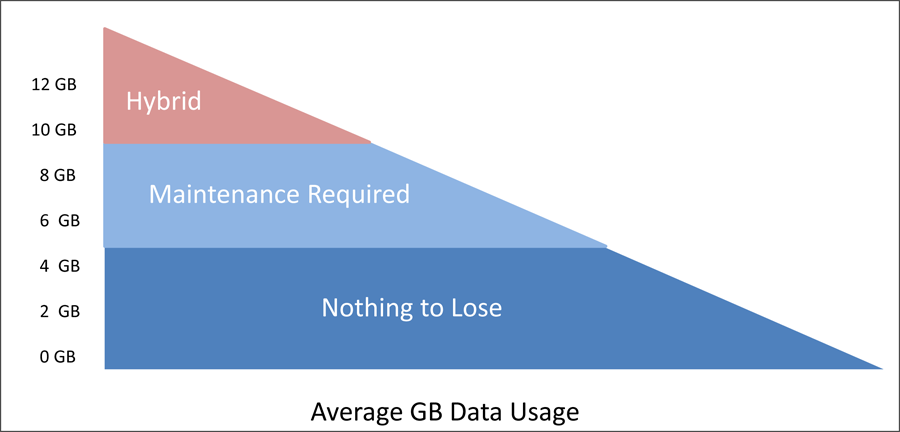MobilSense Optimization Tip – Time for Data Pooling?
Finding Savings by Pooling Your Corporate Data Cards
Two driving factors are surfacing more practical answers for data pooling. First, carriers are motivated to replace the older generation of unlimited data plans with new bounded data plan options and second, competitive pressures in the consumer/family arena are driving new data sharing choices that are undermining traditional corporate data plans. The carriers have responded with their first wave of corporate data sharing plans. Though savings are not dramatic with these current offerings they are, for most corporate environments, a step in the right direction.
With the exception of Sprint who chooses to differentiate itself on the basis of unlimited data plans, the carriers are aggressively moving to create stepwise capacity-limited tiers or in yet other cases they are beginning to throttle throughput speeds once plan limits are reached. Previously data pooling represented a sizeable risk due to high overage rates and the ready access to unlimited data plans. Now that overage rates are less painful it is a rare case where companies won’t derive at least some savings benefits from data pooling.
With a limited number of data tier options for data cards (5GB and 10GB) it can be challenging to accomplish granular buffer tuning. The graph above differentiates three general bands representing slightly different approaches to pooling based on the average GB usage per data card. Because the carriers sell the shared version of data plans at the same price as the non-shared ones there are some ‘no-brainer’ instances for data pooling. If you are averaging less than 4.5 GBs across all your corporate data cards and you have a reasonably large population (> 100) then it makes no sense not to pool. Putting everyone on a shared 5GB plan will be the same cost as leaving everyone on the 5GB individual plan but with added protection against overage charges. Savings will come from users that would need 10GB plans to avoid overage or those that would otherwise incur overage charges on 5GB or 10GB individual plans.
For companies in the band that average between 4.5GBs and 9.5GBs per data device, data pooling is also advised but may require some monthly monitoring and maintenance to insure ongoing savings. Once your data usage grows beyond the bounds of 5GB plans, your savings can now fluctuate based on your capacity to maintain cost effective buffers through a mix of 5GB and 10GB plans. Look for our tip next week to learn more on the topic of setting correct data pool buffers.
In our experience it is rare that a pool of data cards would average > 9.5GBs but in this instance it is important to recognize the fact that carriers charge less for overage on individual plans ($10/GB) than they do for pooled plans ($15/GB). What that means is if your usage is such that you are going to frequently incur overage charges even if every device is maxed out on a 10GB plan, then you may want to consider a mix of plans where the highest users are removed from the pool to benefit from lower overage charges of individual plans.
